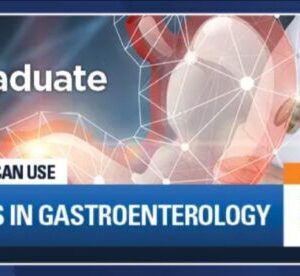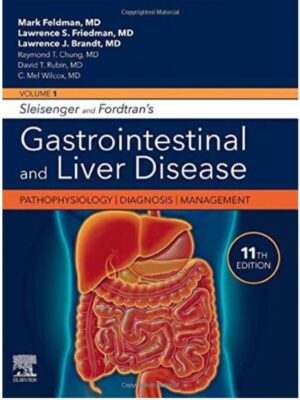No products in the cart.
Gastroenterology, Pathology
USCAP Tutorial In Pathology of the GI Tract, Pancreas, and Liver 2023
$110.00
Original release date: March 23, 2023
Course Description
Gastrointestinal pathology emerged as a subspecialty in the mid-to-late 1980s, coincident with utilization of endoscopy with mucosal biopsy for diagnosis and management of patients with gastrointestinal disorders. The widespread availability of endoscopy coupled with advances in tissue acquisition techniques have drastically increased the number and variety of gastrointestinal samples pathologists encounter in daily practice. As a result, pathologists are now required to provide comprehensive diagnostic information based on review of scant material. Classification of tumors is often completed based on interpretation of immunohistochemical stains coupled with molecular analyses to identify druggable targets or underlying germline conditions. Pathologists also direct the evaluation of patients with gastrointestinal complaints, particularly when patients have persistent symptoms or are immunosuppressed. Thus, they must be able to hone in on key features present in biopsy material in order to narrow the differential diagnosis and better direct patient care. This course is intended to address these needs in a succinct and pragmatic fashion. The course includes both lectures and case-based interactive microscopy sessions.
Upon completion of this educational activity, learners will be able to:
Describe practice approaches to the diagnosis of inflammatory gastrointestinal disorders, with a focus on biopsy interpretation
Discuss criteria to facilitate distinction between different causes of esophagitis and gastritis
Evaluate biopsy samples from patients with malabsorptive symptoms
Classify patterns of colitis and recognize medication-related injuries
Recognize inflammatory and neoplastic conditions of the anus and appendix
Discuss biopsy interpretation of the liver
Discuss diagnostic criteria for pancreatic pathology
TOpics
Liver Anatomy and Histology – John Hart, MD
The Differential Diagnosis of Chronic Hepatitis in 2023 – Lawrence J. Burgart, MD
Case Discussion: Metabolic Liver Disease – John Hart, MD
Case Discussion: Biliary Diseases and Cholestasis – Lawrence J. Burgart, MD
Case Discussion: Hepatic Tumors – John Hart, MD
Medication-Related Liver Injury – Laura Lamps, MD
Frozen Sections of the Bile Ducts, Pancreas, and Liver – Rhonda K. Yantiss, MD
Case Discussion: Granulomas in the Liver – Laura Lamps, MD
Case Discussion: The Appendix – Laura Lamps, MD
Case Discussion: Lumps, Bumps, and Serrated Polyps – Lawrence J. Burgart, MD
Barrett Esophagus and Early Gastric Neoplasms – Elizabeth A. Montgomery, MD
Ulcerative Colitis, Crohn’s Disease, Pouches, and Dysplasia – Joel K. Greenson, MD
Case Discussion: Mesenchymal Tumors of the GI Tract – Elizabeth A. Montgomery, MD
Case Discussion: Patterns of Esophagitis – Rhonda K. Yantiss, MD
Case Discussion: Gastritis and Gastropathy – Rhonda K. Yantiss, MD
Case Discussion: Small Bowel Biopsies – Joel K. Greenson, MD
Case Discussion: Important Lesions of the Anorectum – Elizabeth A. Montgomery, MD
Case Discussion: A Practical Approach to Colitis – Joel K. Greenson, MD
Case Discussion: Intraductal and/or Cystic Neoplasms of the Pancreas – Olca Basturk, MD
Biliary Tract and Gallbladder Pathology – Olca Basturk, MD
Colorectal Cancer Staging Issues – Nicole C. Panarelli, MD
Case Discussion: Solid Tumors of the Pancreas – Olca Basturk, MD
Case Discussion: Primary Neoplasms and Their Mimics – Nicole C. Panarelli, MD
Case Discussion: Biomarkers and Important Prognostic Features Present in Tumor Biopsies from the GI Tract – Nicole C. Panarelli, MD





